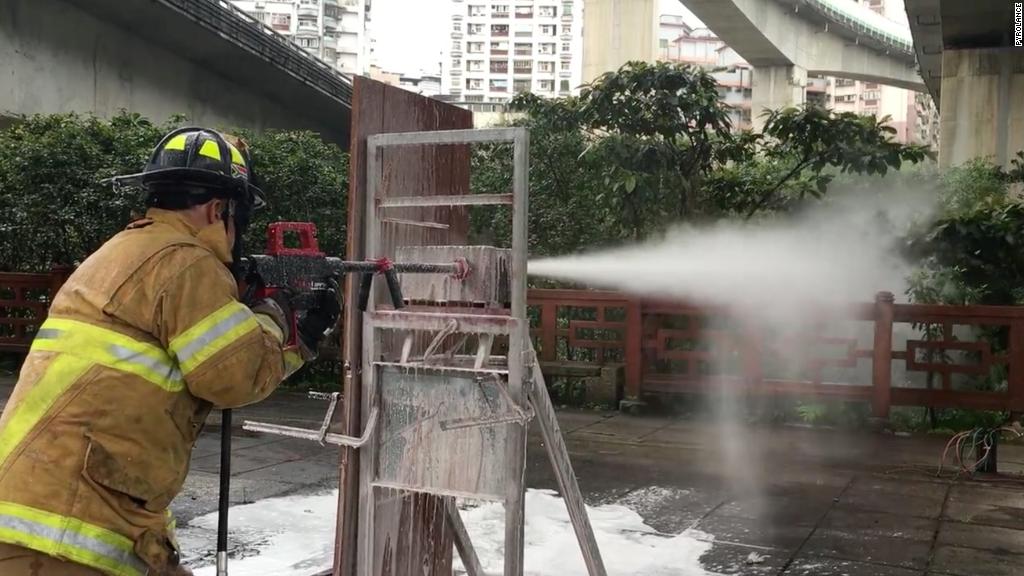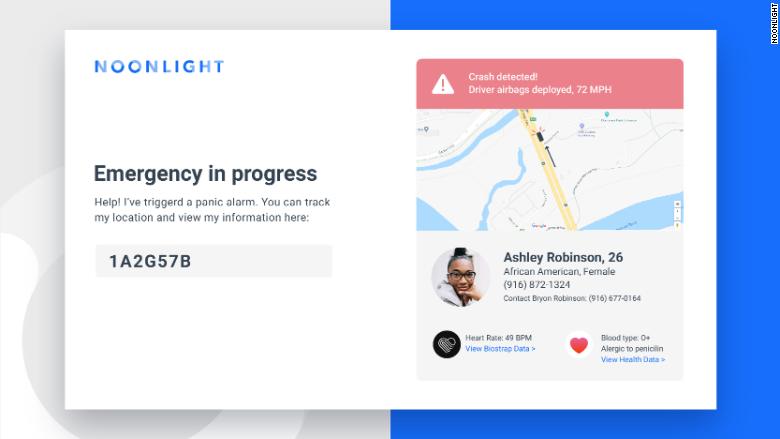
Why should someone in the midst of a heart attack or comforting an injured child have to dial 911 when any one of the internet-connected gadgets in their home could do it for them?
That's the thinking behind Noonlight's push to put its personal safety app into everything from smart speakers to smart smoke detectors. Because as company founder Nick Droege put it, "You shouldn't have to press a button to get help if you're having a seizure."
Automakers figured this out years ago with features like OnStar, which can summon help when you've run off the road. But so far no one's brought such tech into the house in an equally big way. Even Alexa doesn't support calls to 911.
Noonlight, which until recently went by the name SafeTrek, launched five years ago with a smartphone app that lets you summon help without saying a word. Crossing a darkened parking lot in the wee hours? Just press and hold the button on the screen. Release it, and the app calls 911 unless you enter a PIN. The service costs $3 a month.
Related: iPhones will share your exact location with 911
Now the company wants to expand the platform to gadget makers and usher in a new era of personal safety. It has partnerships to put its tech in the Amazon Alexa and Google Home smart speakers, Apple Health app, Nest Protect smoke detector, Canary security camera, and Biostrap health wearable.
The first integration went live Thursday with Canary. If it notices something amiss -- say, you've fallen and can't get up -- the camera sends you a push notification. If you don't reply within a set amount of time, it summons help.
Looking a little further into the future, Droege sees a day when all of your smart gadgets keep an eye on you. A Nest cam might see you grabbing your chest as your Apple Watch detects an erratic heartbeat. Google Home hears you gasping for breath and summon help.
These gadgets don't actually call 911 directly. Rather, they alert a dedicated call center, where a human being calls 911. That's what fall detection systems, which use accelerometers to detect a tumble, and vehicle systems like OnStar do.
You could argue, as Droege does, the call center approach is better than calling 911 directly because the center can keep detailed information about your location and medical history. Summon help from Noonlight and the call center creates a webpage with a unique case number and all of the relevant info, and gives the URL to a 911 dispatcher.
Related: Harvey highlights issues of aging 911 tech
Droege says existing 911 is obsolete because it often relies on outdated software that can be a hassle to update. Apple (AAPL) reinforced the point when it announced it is working with a company called RapidSOS to provide 911 dispatchers with precise location information for calls made from iPhones.
All of this raises some serious privacy questions, of course. Data that goes into 911 systems is "pretty heavily siloed and protected," says Joseph Jerome, policy counsel at the Center for Democracy and Technology's Privacy and Data Project. There's no guarantee any of the devices that incorporate Noonlight will offer similar protection, he said.

He also worries the police or other authorities may try to obtain some of that information. This is not an unreasonable concern, given that prosecutors in Arkansas sought recordings from an Alexa smart speaker in a murder case last year. "It will be important to ensure this sort of proactive health monitoring is not used against individuals," he said.
Jerome also wonders if people really want an internet connected baby monitor and a smart speaker working together to make critical decisions. "It's important to recognize that we're grafting life or death functionality onto consumer products," he said. "The average wearable device is not something that is FDA-approved, and these products aren't necessarily interoperable."
Droege isn't worried. He believes smart devices can, and will, save lives. "We see the future of where it's going," he says. "Safety doesn't just have to be reactionary. It can be proactive."

